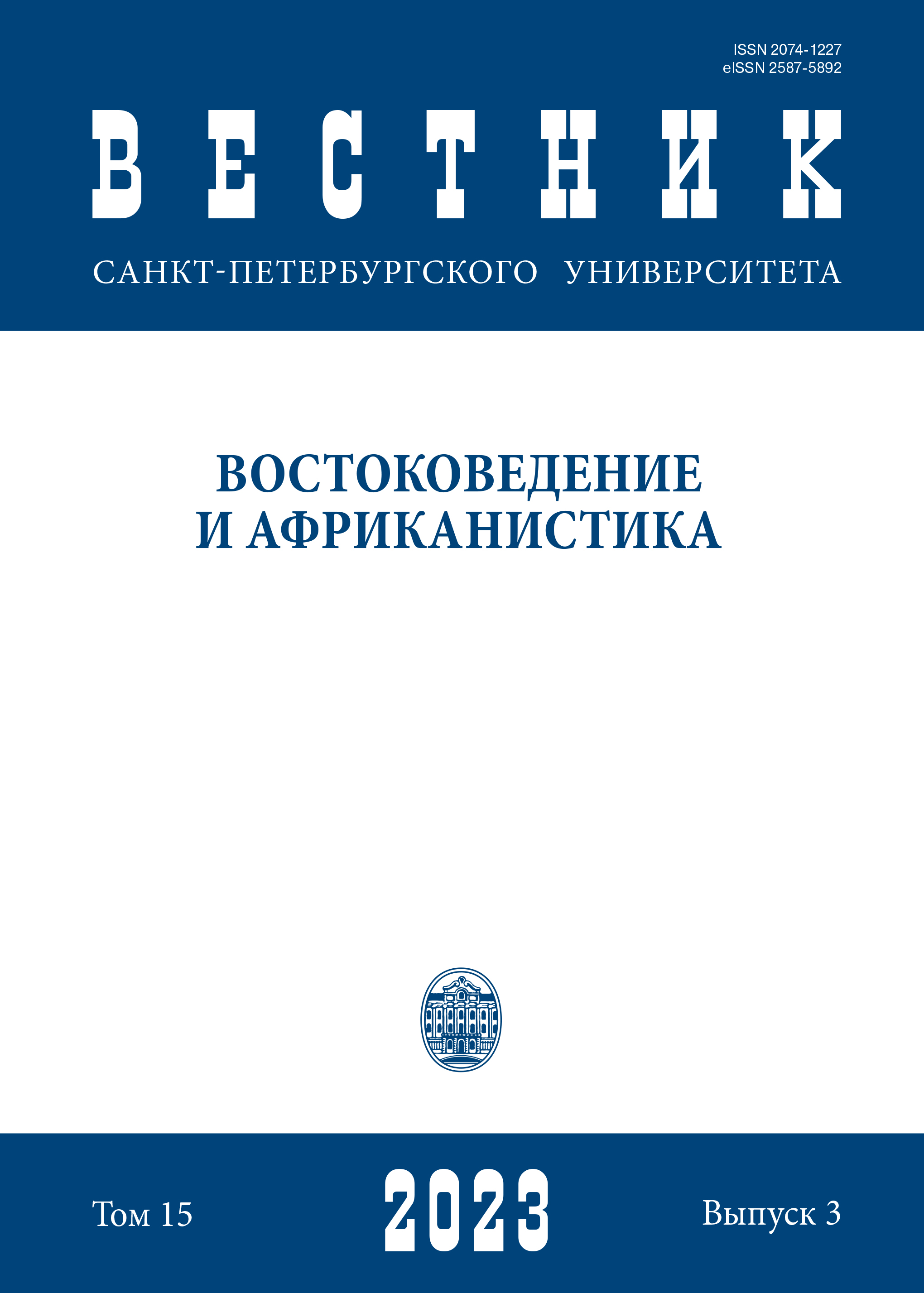The begining of the 20th century: spelling features and punctuation in the process of approbation the letter usul-sotie (tote zhazu) in the newspaper «Kazakh» (1913-1918)
DOI:
https://doi.org/10.21638/spbu13.2023.308Abstract
Changes and innovations in the language are normalized by writing. Writing is not only marks the sounds of a language, but is also a factor in determining the future of a language both in the past and in the present. The main goal of writing is to ensure the discreteness of the audible word and the uniform recognition of the word, even if it is repeated many times in different contexts using the alphabet. In the history of Kazakh culture, the reformed letter of A. Baitursunuly «usul-jadid» (tote zhazu) was very important. Writing or the so-called tote zhazu played a significant role in enlightenment, in writing the first textbooks and teaching guide in the Kazakh language, in the development of literacy, as well as in the development of periodicals. The reformed alphabet of A. Baitursynuly showed and introduced to the scientific community the entire Kazakh people, as well as the first bright minds of the Kazakh intelligentsia. With the help of the usul-jadid, the Kazakh intelligentsia under the leadership of A. Baitursunuly, at the beginning of the 20th century, published the newspaper of national importance «Kazakh». In this regard, the article touches upon the issues of spelling, punctuation, problems of Kazakh writing in the early twentieth century. Moreover launch of «Kazakh» newspaper is considered as a start of the systematization and codification of the literary Kazakh language and national journalistic style.
Keywords:
Usul-kadym, usul-sotie, spelling, newspaper language, literary Kazakh language
Downloads
References
Downloads
Published
How to Cite
Issue
Section
License
Articles of "Vestnik of Saint Petersburg University. Asian and African Studies" are open access distributed under the terms of the License Agreement with Saint Petersburg State University, which permits to the authors unrestricted distribution and self-archiving free of charge.





